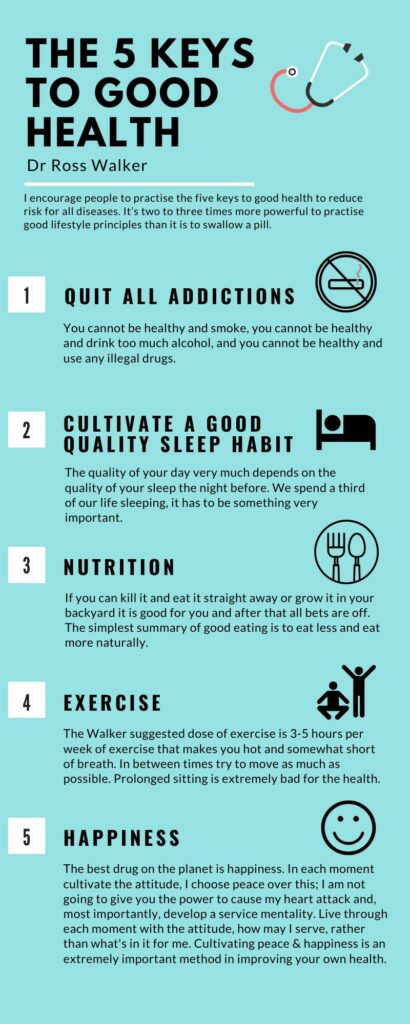How to: prevent cancer with innovative screening and lifestyle changes
By Dr Ross Walker
According to the WHO, 38 individuals are diagnosed with cancer, and 18 die from it worldwide every minute. Cancer diagnoses are projected to increase by 77%, reaching approximately 35 million cases by 2050.
Early screening
Early cancer screening is emerging as a cornerstone for improving treatment outcomes and enhancing survival rates. Detecting cancer at its initial stages significantly increases the likelihood of successful intervention. Statistics show that early-stage cancers can lead to five-year survival rates of over 90% in some types, like colorectal cancer.
We can use colorectal cancer as an excellent example. The National Bowel cancer screening program and colonoscopies, when indicated, lift the survival rates to well above the 95% figure.
One of the latest advancements in screening techniques is the development of liquid biopsies. These tests analyse biomarkers, which in this case are the DNA footprint of the specific cancer in its early development. These are found in blood samples, allowing for the non-invasive identification of cancer signatures, even before symptoms arise. Additionally, technological innovations like low-dose computed tomography (CT) have improved lung cancer screening, offering a less invasive option that contributes to earlier detection.
Lifestyle changes
Integrating lifestyle changes into cancer prevention strategies plays a vital role. Adopting a healthy diet rich in fruits, vegetables, whole grains, and lean proteins can bolster the immune system and lower cancer risk. Regular physical activity is equally important; studies indicate that maintaining an active lifestyle can reduce the risk of several types of cancer, including breast and colon cancer.
Many cancers are related to the epidemic of diabesity we are now seeing around the globe. It is estimated that practising the 5 keys to good health reduces cancer risk somewhere between 70-80%.

Public health campaigns emphasising the importance of vaccinations, such as the HPV vaccine, also contribute significantly to cancer prevention. This happens by targeting virus-related cancers. Furthermore, educating the public on the risks of smoking and the benefits of quitting can drastically reduce lung cancer incidence.
Promoting awareness
Promoting awareness about screening guidelines, such as annual mammograms for women over 40 and colonoscopies starting at age 45, further empowers individuals to take charge of their health. The combined effects of early screening and lifestyle modifications not only improve individual health outcomes but also reduce overall healthcare costs by allowing for less aggressive treatments and improved quality of life for cancer survivors.
In conclusion, the synergy of advanced screening techniques and proactive lifestyle changes holds immense potential in the fight against cancer, ultimately paving the way for a healthier future.
